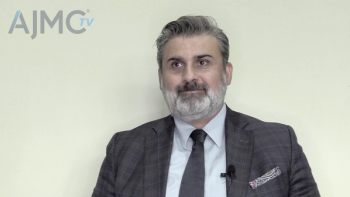
Dr Alison Moskowitz on the Importance of Patients Understanding Their Diagnosis, Treatment Options
It’s incredibly important that patients with Hodgkin lymphoma understand their diagnosis, their treatment options, and their prognosis, explained Alison J. Moskowitz, MD, medical oncologist, clinical director, lymphoma inpatient unit, Memorial Sloan Kettering Cancer Center.
It’s incredibly important that patients with Hodgkin lymphoma understand their diagnosis, their treatment options, and their prognosis, explained Alison J. Moskowitz, MD, medical oncologist, clinical director, lymphoma inpatient unit, Memorial Sloan Kettering Cancer Center.
How important is it to engage patients with Hodgkin lymphoma so that they understand their diagnosis and their treatment options?
I think it’s incredibly important that patients understand their diagnosis and what the treatment options are and what their prognosis is. I think that the treatment options that we have to offer patients are often not straightforward and now black and white where there’s one right or wrong answer. Some of it really has to depend upon the patient’s own values and their own choices.
One example of that is when we are offering patients with early stage Hodgkin lymphoma a treatment approach where we’re going to consider either combined modality therapy, where we include radiation therapy or chemotherapy alone. That is an important discussion to have with the patients, because the cure rate with chemotherapy alone for early stage Hodgkin lymphoma is not as high as when we use combined modality therapy. But, by eliminating the radiation, we are reducing long-term toxicity. But there’s a small group of patients who are going to relapse and then going to need much more intense chemotherapy and a stem cell transplant in order to cure their disease at that point.
So, even though the majority of patients still will be cured with chemotherapy alone, it’s an important discussion to have with the patients to make sure they understand what they’re potentially giving up if they’re not getting radiation earlier on in their treatment.
I think it’s perfectly reasonable to avoid radiation for many, many patients, but I think we have to be informing patients why we’re making this choice and have them be a part of that choice as well.
Newsletter
Stay ahead of policy, cost, and value—subscribe to AJMC for expert insights at the intersection of clinical care and health economics.










